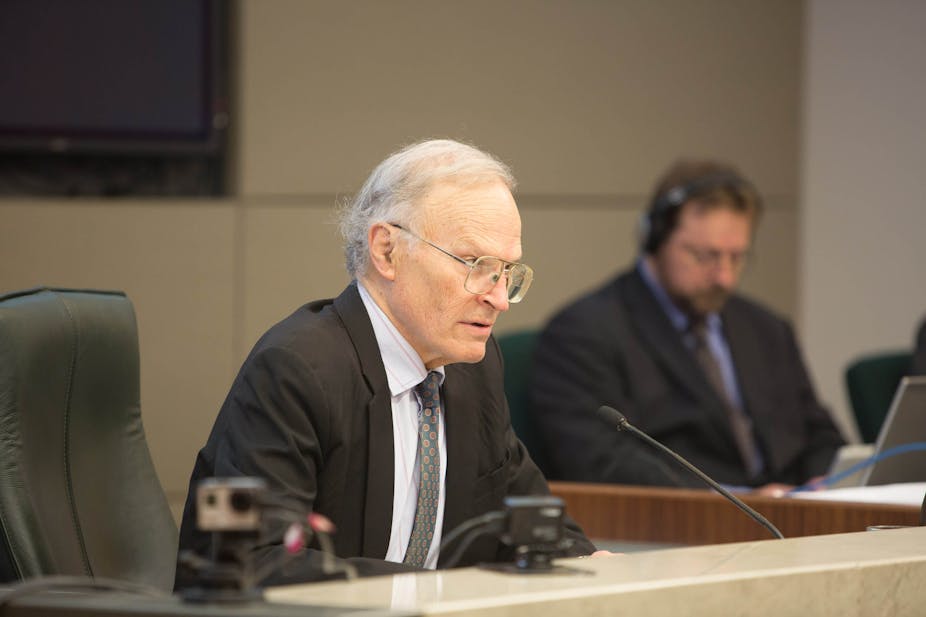The royal commission into union corruption has been extended for a year and given wider terms of reference, after finding evidence of criminal conduct by union officials.
Attorney-General George Brandis today released a letter from commissioner Dyson Heydon in which he said the inquiry had revealed “widespread instances of physical and verbal violence, cartel conduct, secondary boycotts, contempt of court and other institutional orders, and the encouragement of others to commit these contempts.
"Some officials appear to regard their unions as having immunity not only from the norms and sanctions of the Australian legal system, but also from any social or community standard shared by other Australians,” Heydon wrote to Brandis.
Heydon said there were dimensions of criminal conduct revealed by the evidence so far suggesting a more thorough examination was desirable.
He suggested widening the terms of reference to cover action undertaken to conceal certain conduct, saying that interfering with witnesses, for example, was not easily covered by the present terms.
The commission will produce an interim report by the end of this year, its original reporting date. The extension will put the final report, which will have implications for the ALP, quite close to the 2016 election.
Brandis told a news conference that it was very apparent from Heydon’s letter that there was a “large amount of unfinished business before the royal commission”.
“It is very plain that the problem of criminality and the associations between certain unions and certain union officials and crime is a much more widespread problem than appeared to be the case when at the beginning of the year the government decided to establish the royal commission.”
The cost of extending the inquiry is estimated to be $23.6 million, but because it has underspent its budget so far by $15.2 million, the net extra cost is put at a little more than $8 million. The interim report will be made public; Brandis said whether that report would give the commission’s final word on matters relating to former prime minister Julia Gillard, from whom it took evidence, would be up to the commission. The commission has investigated her role, when she was a lawyer, in the setting up of a slush fund by her then boyfriend.
Heydon said in his letter that by December it would be possible to “illustrate representative aspects” of certain conduct.
“These relate to many types of funds, set up by many different unions – for example, ‘slush funds’ (dedicated to funding the re-election campaigns of particular tickets of officials), superannuation funds, redundancy and income protection schemes, and funds for general purposes relating to union interests,” he said.
“The evidence relevant to these topics has been comprehensive and will enable appropriate findings and recommendations to be made.”
More than 200 witnesses have given oral evidence to the commission during its public hearings.

